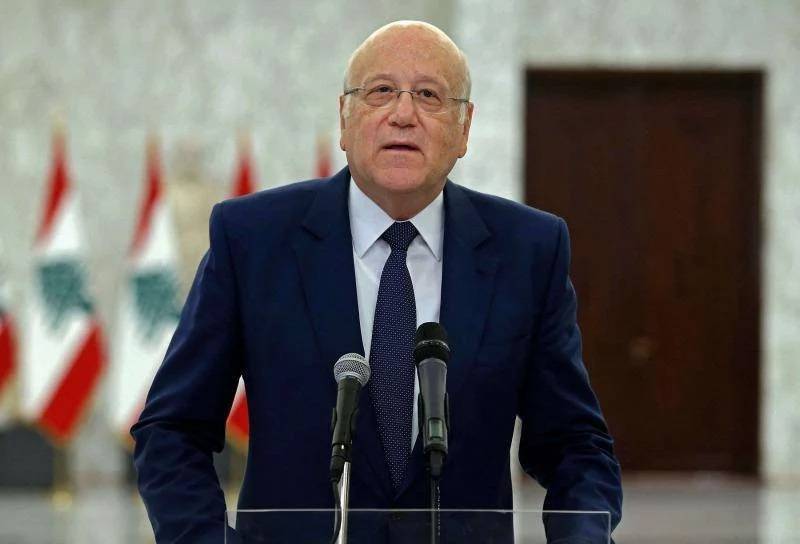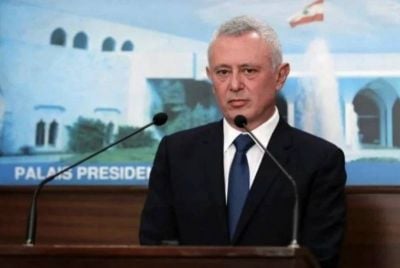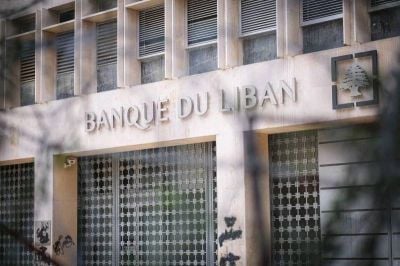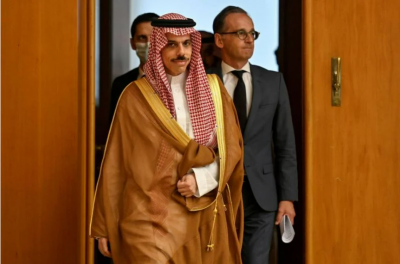
Caretaker Prime Minister Najib Mikati. (Credit: Dalati and Nohra)
BEIRUT — Caretaker Prime Minister Najib Mikati stated in an interview Monday with Al Jazeera that he has a “historical relationship with Sleiman Frangieh,” and hoped that the latter will be the country's new president.
Frangieh is the leader of the Marada Movement political party and is one of the first figures considered to have entered the race for Baabda, without ever officially announcing his candidacy. The Zgharta-born politician is increasingly deemed a serious contender to win the presidential seat.
In Monday's Al Jazeera interview, Mikati assured that "a new president must be elected immediately” so the political situation in Lebanon can be “in order.” He added that the future head of state must be "acceptable for all parties and not considered as posing a challenge to anyone."
Lebanon entered an executive double vacancy when President Michel Aoun's term ended on Oct.31. No candidate has yet been elected to succeed Aoun, while Mikati's cabinet is still functioning in caretaker status as a new one has not been formed since legislative elections in May.
Exchange rate
Mikati also stated that "the official exchange rate for the dollar will be adjusted gradually over the coming months."
In September, Lebanese authorities announced that the official rate would become LL15,000 to the dollar beginning Nov. 1. However, confusion surrounded this transition at the beginning of the month. A Finance Ministry spokesperson told L'Orient Today Monday that some taxes and fees, except for customs, will convert from the official exchange rate of LL1,500 to a new rate of LL15,000.
The move comes as part of the long-delayed 2022 budget, which will finally be published in the Official Gazette Tuesday, the spokesperson added.
Mikati had said in September that the gap between the market rate of around LL38,000 and other rates must close "sooner or later" — an IMF demand included in a draft funding agreement inked in April — but this would take time.
More than 80 percent of Lebanese now live below the poverty line, as the depreciation of the national currency wiped out their purchasing power.
Iranian oil
On the issue of potential sanctions that could be imposed by the US administration, Mikati concluded by stating that he will "address Washington officially to inquire about the possibility of Lebanon being subject to sanctions if it accepts the gift of Iranian oil."
Caretaker Foreign Minister Abdallah Bou Habib met his Iranian counterpart Hossein Amir-Abdollahian in September in New York, where Amir-Abdollahian reaffirmed Iran's willingness to supply Lebanon with fuel. Talks are still ongoing.
Last year, Iran sent fuel to Lebanon via Hezbollah, which is designated as a terrorist organization by the US and some other Western nations. That fuel was shipped to Syria and then brought into Lebanon in trucks to avoid sanctions. The US did not take any action in response.
Mikati further considered that part of the crisis that Lebanon is experiencing is caused by “the deterioration of Lebanon's relationship with the Arab countries.”
In Nov. 2021, Saudi Arabia and other Gulf monarchies called back their ambassadors to Lebanon and suspended their imports from Lebanon.
The move came in reaction to remarks made by former Information Minister George Kurdahi in which he strongly criticized the Saudi-led intervention in Yemen in support of the government forces and sided with the Iran-backed Houthi rebels. The Saudi Ministry of Foreign Affairs had then stated that the diplomatic rift also resulted from the growing influence of Hezbollah on Lebanese politics. Six months later, in April 2022, ambassadors of the Gulf countries, including the Ambassador of Saudi Arabia to Lebanon, Waleed Bukhari, were sent back to Beirut.


